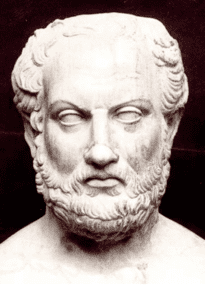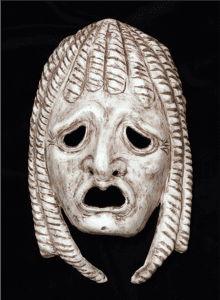You do not have to be a historian or a specialized scholar to come into a discussion about ancient Athens and its achievements. Athens is famous as the birthplace of numerous accomplishments.
Here is a table with the basic facts you need to know.
| Achievements | Description | Key Players | Fun fact |
|---|---|---|---|
| Architecture | Magnificient buildings are based on columns of three major types Dorian, Ionian, and Corinthian. | Iktinos, Kallikratis | Courts and Banks around the world use ancient Athenian architecture to project prestige and power. |
| Astronomy | The study of shapes and their correlations were initially a part of Mathematics. | Empedokles, Anaxagoras | The word planet comes from the Greek planitis which means wanderer. |
| Democracy | The idea is that citizens should shape state laws as they live by them. | Cleisthenes | No one could interrupt the citizen who was giving a speech in the Agora. For any reason. Ever. |
| History | First-time history was recorded as “not for pleasure”. Thucydides described The Peloponnesian War between Athens and Sparta. | Thucydides | Thucydides admired Pericles but thought Democracy would not work without a strong leader. |
| Mathematics | Greek mathematicians were the first to use logic and proof for solving mathematical problems. | Thalis, Pythagoras | Pythagorean theorem is taught in schools today everywhere in the world. |
| Medicine | The first organized and clear set of medical rules was documented 2.500 years ago. | Hippocrates | Young doctors swore to Hippocrate’s oath, and the gods of Olympus, up until 1948. |
| Philosophy | The study of thought as the basis of the Western culture | Socrates, Plato, Aristotle | Socrates did not believe in writing. If it was not for his student Plato we would know nothing of his work. |
| Theater – Comedy | The first use of humor as a means of political criticism. | Aristophanes | Epidavros Festival each year presents Aristophanes’ plays with spectators from all over the world. |
| Theater – Tragedy | The evolution of god-focused festivities to plays for the citizens’ enjoyment. | Sofocles | Each play in open-air theaters in ancient Athens was performed only once. |
1. Architecture

Temples and public buildings give us information about architecture in ancient Athens during the 6th and the 5th centuries BCE. The Parthenon was the temple dedicated to the goddess Athena. It is considered to be the finest example of Greek architecture. The two architects responsible for the Parthenon temple were Iktinos and Kallikratis.
The basic three architectural styles were named after the cities they originated from. In ancient Athens, we can find beautiful buildings of all three major orders, Doric, Ionic, and Corinthian.

The Doric Order
The Temple of Hephaestos, in Athens, right next to the Acropolis sacred rock is a well-preserved temple of the peripteral hexastyle plan.
The specific temple was delayed in its completion, as during the 5th c. BCE Pericles devoted all available resources to build the nearby Parthenon.

The Ionic Order
The Erechtheion inside the Acropolis in Athens, was a building of an asymmetrical plan, for the display of offerings to Athena.
Corner capital with a diagonal volute followed the Ionic style with beautiful details separated by fillets.

The Corinthian Order
The Temple of Zeus Olympia, Athens, (“the Olympieion”) is a typical example of the Corinthian style.
The tall capital combines both semi-naturalistic leaves and highly stylized ones.
2. Astronomy
Ancient Greeks, unlike priests of the time in other parts of the world, did not seek to study the stars to guess the fate of people. On the contrary, they wanted to discover the laws that govern the planets’ movements. Ancient Greek Astronomy can be divided into four major periods:
- 1st period 16th c. BCE: The Mythical era.
- 2nd period 7th c. BCE – 5th c. BCE: The Presocratic era.
- 3rd period 5th c. BCE – 4th c. BCE: The Socratic era. Representatives are Plato, Aristotle, and Eudoxus.
- 4th period: 4th BCE – 5th c. CE. Aristarchus the Samian, is called the Copernicus of antiquity because of his heliocentric theory.
Astronomy initially started as part of the study of Mathematics.
In the 5th century BCE, Empedocles and Anaxagoras based their observations on a lunar eclipse. That way they provided evidence that Earth was a sphere.
In ancient Athens, we meet the same thinkers in more than one science. This is because during Pericle’s Golden Era it was quite common for people to study multiple areas. They were philosophers-mathematicians or astronomers-mathematicians-philosophers, and so on.
Plato’s particular interest in mathematics and astronomy makes him a great figure in the history of this science, too. His work “The Republic” describes the motion of celestial bodies. The planets he talked about were the Earth, the Moon, the Sun, Venus, Mercury, Mars, Zeus, and Saturn.
3. Democracy
Democracy was introduced in Athens under statesman Cleisthenes (507 BCE).
The voting right and the active citizenship role were for the free, male, adult citizens of Athenian birth, who had served in the army, were paying taxes regularly, and were treating their parents with respect!
All citizens had the right to attend the Assembly on Pnyx Hill. They met about 40 times per year and they voted upon all issues including their participation or not in a war. This 3 min video from the History Channel very vividly describes the era.
4. History

We consider Thucydides as one of the first true historians.
He introduced the method of historical causality. Instead of relying on rumors, myths, and traditions, he actively sought proof and the deep causes of an event.
He based his work on facts that he repeatedly checked. That is why we refer to his method as the first scientific one.
Many times we find another Greek, Herodotus, who was Thucydides’ predecessor, to have the “father of history” title. But his version of historical data, although novel and valuable at the time, included myths and divine interventions.
Thucydides’ work was based on written documents and interviews with people who participated in or even led the events he referred to.
His resources, his objectivity, and his methods were not that different from what today’s historians find as the optimum.
5. Mathematics

Thales (~600 BCE) used geometry to solve problems such as calculating the height of the pyramids and the distance of ships from the shore. Thalis is the first mathematician and also the first known person with a mathematical discovery.
The Pythagorean theorem, discovered by the philosopher and mathematician Pythagoras (582 to 500 BCE) was a major scientific breakthrough. This led to extraordinary advances in mathematics, geometry, and astronomy.
“The square of the hypotenuse of a right-angled triangle is equal to the sum of the squares of the other two sides”.
The Pythagorean theorem, Pythagoras (582 -500 BCE)
Pythagoras founded the Pythagorean School, which claimed that mathematics ruled the Universe. The school’s motto was “Everything is numbers”.
It was the Pythagoreans who coined the term “mathematics” and began the organized study of mathematics.
6. Medicine

The Greek physician Hippocrates (460 – 377 BCE) is the founding father of medicine.
In his work “At the doctor’s office“, he describes in detail
- how to prepare the patient before the operation,
- how to sterilize the tools,
- how to arrange the space, and even
- use artificial and natural light during the operation to get the optimum result!
2500 years ago Hippocrates performed operations despite the almost non-existent means of his time.
He and his students successfully dealt with cases of orthopedics, basic surgery, and even cardiac surgery.
“Our body has the ability to heal itself. Diet, movement, environment, lifestyle, way of thinking are of utmost importance.”
Hippocrates (460-377 BCE)
7. Philosophy
Greeks were travelers and we should assume that Asian thought influenced them. Despite that, philosophy, as we understand it today, started in ancient Greece.
More specifically, Socrates, his student Plato, and his student Aristotle have created a strong route that starts in ancient Athens and leads to Roman philosophy, Early Islamic philosophy, the European Renaissance, and the Age of Enlightenment.
More information about these three pillars of Philosophy is in the Philosophy and Tragedy: The classics and the inside stories article of yfiA.
8. Theater – Comedy

Dionysius was the god of wine and fertility. Greeks celebrated this god with a series of festivities which were gradually transformed into organized plays.
A chorus of men dressed as satyrs – this is where the origin of the term satirical comes from – was turned into a group and a narrator. And then they were accompanied by one, then two, and eventually more actors.
Aristophanes is considered the father of comedy. His plays are well preserved and are characterized by merciless satire, unabashed humor, and extreme political criticism.
9. Theater – Tragedy

In the 6th century BCE, we first see an annual drama competition. There Athenians presented plays and then ranked them according to the audiences’ preferences.
The initial themes were on patriotism, the gods, the relationship with the state, family, liberty, and hospitality. The plays were presented each spring in the huge amphitheaters which were built for that reason.
Sofocles brought several innovations to the blossoming form of drama for example the third character. He also wrote what is still considered the greatest masterpiece of tragedy Oedipus Rex.
Sofocles along with Aeschylus and Euripides are the only three ancient greek tragedians whose plays have reached our days in completion.

